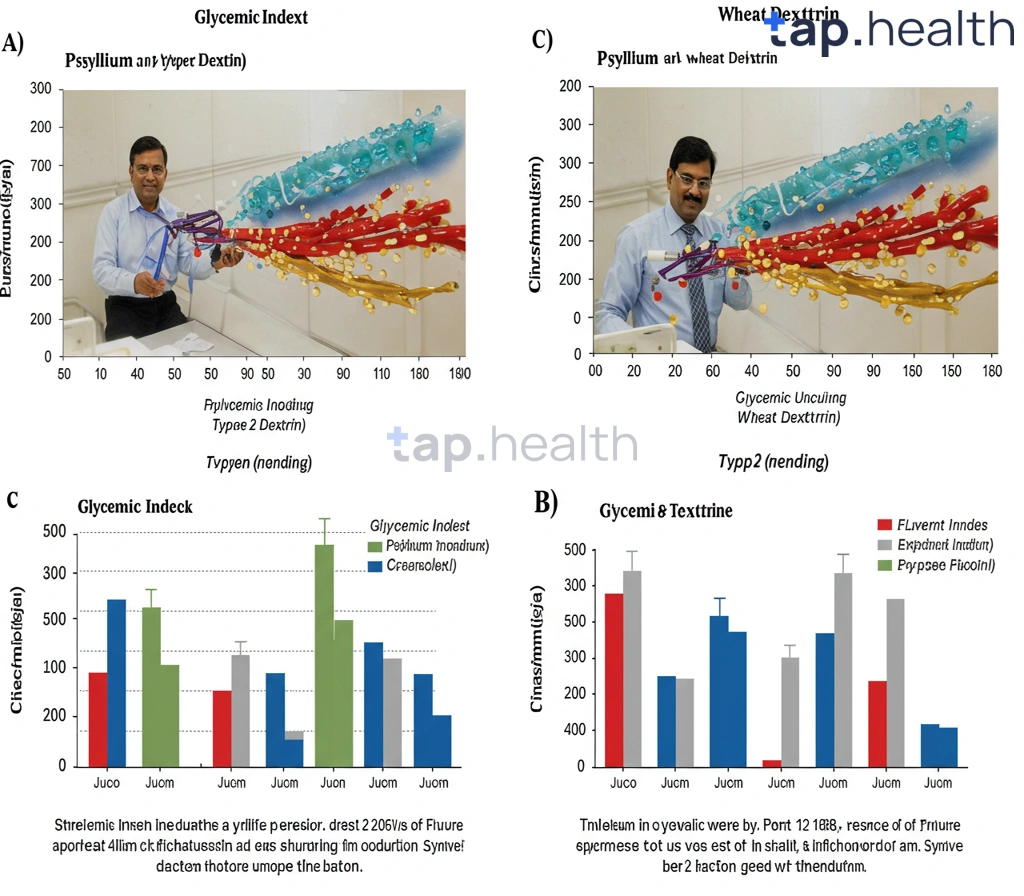Table of Contents
- Weight Regain After Bariatric Surgery: Diabetes Implications
- Understanding Post-Bariatric Weight Fluctuation in Diabetics
- Preventing Weight Gain Following Bariatric Surgery for Diabetes
- Is Weight Regain Inevitable After Bariatric Surgery? A Guide for Diabetics
- Managing Weight After Bariatric Surgery: Tips for Diabetic Patients
- Frequently Asked Questions
- References
Successfully managing diabetes often involves significant lifestyle changes, and bariatric surgery can be a powerful tool in achieving those goals. But what happens after the initial weight loss? Many patients find themselves facing the challenge of understanding weight regain after bariatric surgery, particularly concerning its impact on their diabetes management. This is a common concern, and it’s crucial to address it head-on. This blog post will explore the reasons behind weight regain following bariatric procedures for diabetes patients, offering insights and practical strategies to help you maintain your hard-earned progress and continue your journey towards better health.
Weight Regain After Bariatric Surgery: Diabetes Implications
Weight regain following bariatric surgery is a significant concern, particularly for individuals in India and tropical countries battling diabetes. The financial burden of diabetes is immense; in the U.S. alone, it costs an estimated $327 billion annually in direct medical costs and lost productivity. This underscores the critical need for effective long-term weight management strategies after surgery. For patients in these regions, cultural food habits and potentially limited access to post-operative support can exacerbate the risk of weight regain.
Understanding the Challenges
Several factors contribute to weight regain after bariatric surgery in individuals with diabetes. These include inadequate adherence to dietary guidelines, insufficient physical activity, and a lack of ongoing medical supervision. In Indian and tropical countries, readily available, high-calorie, and processed foods can pose significant challenges to maintaining a healthy weight. Furthermore, psychological factors such as stress and emotional eating can also play a role. Effective weight management requires a holistic approach that addresses these various aspects. Understanding the link between diabetes and obesity is crucial for successful weight management, as highlighted in our article, Understanding the Link Between Diabetes and Obesity.
Strategies for Success
To mitigate weight regain and improve long-term diabetes management, patients need robust support systems. This includes regular follow-up appointments with a surgeon and dietitian, consistent monitoring of blood glucose levels, and participation in structured physical activity programs. Developing culturally appropriate dietary plans, incorporating locally available, nutritious foods, is crucial for sustained success. Support groups and community-based initiatives can also play a vital role in providing encouragement and accountability. Seeking professional guidance from a registered dietitian experienced in bariatric surgery and diabetes management is highly recommended.
Moving Forward
In India and tropical countries, proactive measures are essential to combat weight regain and its serious implications for diabetes patients who have undergone bariatric surgery. Prioritizing consistent medical follow-up, adopting a healthy lifestyle, and engaging with support networks are key to achieving long-term success. Connect with a qualified healthcare professional today to discuss personalized strategies for managing your weight and diabetes after bariatric surgery. For those facing the opposite challenge, our article on How to Gain Weight with Type 2 Diabetes? offers valuable insights.
Understanding Post-Bariatric Weight Fluctuation in Diabetics
Weight regain after bariatric surgery is a significant concern, especially for individuals with diabetes in India and other tropical countries. While surgery offers a powerful tool for weight loss and diabetes management, understanding the factors contributing to post-operative weight fluctuation is crucial for long-term success. A large percentage of the diabetic population falls within the 20-64 age group (61%, according to the International Diabetes Federation), a demographic often juggling demanding lifestyles and potentially limited access to consistent post-operative care. This highlights the need for tailored support systems within these regions.
Factors Contributing to Weight Regain
Several factors contribute to weight regain after bariatric surgery. These include inadequate dietary adherence, insufficient physical activity, and hormonal imbalances. In tropical climates, access to fresh produce and consistent dietary support might be challenging, impacting long-term weight management. For the older demographic (39% aged 65+), pre-existing health conditions and slower metabolic rates can further complicate the recovery process. Understanding these unique challenges is key to developing effective strategies for sustained weight loss in this population. This is especially important considering the challenges outlined in Managing Diabetes as You Age: Challenges and Solutions.
Strategies for Success
Successful long-term weight management after bariatric surgery requires a multi-faceted approach. This includes close monitoring by a healthcare team, participation in support groups, and a commitment to lifestyle changes. Prioritizing regular physical activity, tailored dietary plans, and consistent follow-up appointments are essential. In India and other tropical countries, culturally sensitive dietary education and community-based support programs can significantly improve adherence and outcomes. Access to affordable and culturally appropriate resources is vital for sustained weight loss in these regions. Implementing a proper diabetes diet plan can be instrumental in achieving these goals.
Taking Charge of Your Health
It’s important to remember that weight regain after bariatric surgery isn’t inevitable. By proactively addressing the factors contributing to weight fluctuation and actively participating in your post-operative care, you can significantly increase your chances of achieving long-term success. Seek support from your healthcare team, join a support group, and make a commitment to a healthy lifestyle. Your health journey is a marathon, not a sprint.
Preventing Weight Gain Following Bariatric Surgery for Diabetes
Weight regain after bariatric surgery is a significant concern, especially for individuals in India and other tropical countries where lifestyle factors can heavily influence post-surgical outcomes. Understanding the challenges and implementing preventative strategies is crucial for long-term success and diabetes management. Up to 80% of Type 2 diabetes cases can be delayed or prevented through lifestyle changes, as highlighted by research, making proactive measures post-surgery even more vital.
Maintaining a Healthy Diet and Lifestyle
Following a strict, nutritionally balanced diet is paramount. This includes consuming a high-protein, low-carbohydrate diet tailored to your individual needs and cultural preferences. Regular physical activity is equally important, and in tropical climates, focusing on activities that are manageable in the heat, such as early morning or evening walks, swimming, or yoga, is key. Consider incorporating traditional Indian exercises like Suryanamaskar to aid in weight management and improve overall health. Consistent monitoring of blood sugar levels and regular follow-ups with your surgical team and diabetologist are non-negotiable. For those concerned about managing their weight *after* surgery, understanding how to safely gain weight with diabetes, as discussed in How to Gain Weight with Diabetes Safely and Effectively – Tap Health, can offer valuable insights into maintaining a healthy balance.
Addressing Psychological Factors
Weight regain can also stem from emotional factors. Stress, emotional eating, and lack of support can hinder progress. In India and similar regions, building a strong support system within your family and community can significantly aid your journey. Seeking professional guidance from a therapist or counsellor specializing in bariatric surgery support groups can also prove beneficial. Remember that sustainable weight management is a holistic process that involves physical, emotional, and mental well-being.
Long-Term Strategies for Success
Ultimately, preventing weight regain post-bariatric surgery requires a long-term commitment to healthy habits. Consult a registered dietitian to create a personalized meal plan considering local ingredients and dietary restrictions. Regular exercise that fits your lifestyle and climate will help sustain your weight loss. Remember, seeking support and maintaining consistent communication with your healthcare team is critical for long-term success in managing both your weight and diabetes. The use of dietary supplements can also play a role, but it’s crucial to understand safe and effective use to avoid complications. Contact your local bariatric surgery center or diabetes specialist today to discuss a personalized prevention plan.
Is Weight Regain Inevitable After Bariatric Surgery? A Guide for Diabetics
Weight regain after bariatric surgery is a concern for many, especially those undergoing the procedure to manage diabetes. While significant weight loss is achievable, understanding the factors contributing to potential regain is crucial for long-term success, particularly in the context of tropical and Indian climates. Many factors influence post-surgery weight management, including dietary adherence and lifestyle changes.
Understanding the Risks of Weight Regain
Several factors can lead to weight regain. One common issue is the gradual increase in food portions, especially carbohydrate intake. Remember, managing diabetes often involves careful carbohydrate counting. For most, a suggested intake is around 45–60 grams per meal, but this is a general guideline and individual needs vary. Ignoring these dietary recommendations, coupled with a lack of regular exercise, can easily undo the initial positive effects of the surgery. The hot and humid climates prevalent in many Indian and tropical countries may also impact activity levels, making it more challenging to maintain an active lifestyle.
Strategies for Preventing Weight Regain
Successful long-term weight management after bariatric surgery requires a holistic approach. This includes adhering to a diabetes-friendly diet with portion control, engaging in regular physical activity tailored to the climate (perhaps early morning or evening exercise to avoid the midday heat), and consistent monitoring of blood sugar levels. Seeking support from a registered dietitian and a diabetes educator familiar with the specific challenges faced in tropical and Indian contexts is vital. Regular follow-up appointments with your surgical team are also essential for monitoring progress and addressing any concerns. Learning How to Maintain Weight After Losing It is a crucial aspect of long-term success.
Taking Control of Your Health
Weight regain after bariatric surgery isn’t inevitable. By proactively addressing potential challenges, including dietary compliance and adapting exercise routines to suit the environment, individuals can significantly improve their chances of long-term success in managing both their weight and their diabetes. Consult a qualified healthcare professional in your region to create a personalized plan that addresses your specific needs and circumstances. Understanding the factors that contribute to Weight Gaining can help you avoid pitfalls after surgery.
Managing Weight After Bariatric Surgery: Tips for Diabetic Patients
Weight regain after bariatric surgery is a significant concern, particularly for diabetic patients in India and other tropical countries. Maintaining a healthy weight is crucial for effective diabetes management, aiming for blood pressure below 140/90 mmHg, or ideally, below 130/80 mmHg as per some guidelines. Regain often stems from poor lifestyle choices post-surgery. Understanding this is the first step to lasting success.
Lifestyle Changes for Long-Term Success
Successful weight management after bariatric surgery requires a holistic approach. This includes adhering to a strict, balanced diet tailored to your individual needs. Many post-surgery patients in India and tropical regions find it challenging to maintain this due to readily available high-calorie, processed foods. Therefore, prioritizing whole, unprocessed foods like fruits, vegetables, and lean proteins is paramount. Regular physical activity, even short bursts of exercise throughout the day, is vital. Consider incorporating traditional Indian exercises like yoga or walking, readily accessible across the region. For specific dietary guidance, you might find our Diet Chart for Diabetic Patients to Control Diabetes helpful.
Seeking Ongoing Support
Regular follow-up appointments with your surgeon and dietitian are essential. These professionals can monitor your progress, adjust your plan as needed, and provide crucial support. Joining a support group, either in person or online, can offer valuable peer-to-peer encouragement and practical tips for navigating challenges. Remember, weight management is a journey, not a race. Consistency and patience are key. Managing stress can also significantly impact your success, so check out our tips on Effective Stress Management Tips for Better Diabetes Control.
Seeking Expert Guidance in India and Tropical Regions
In India and tropical countries, access to specialized bariatric care and diabetes management varies. It’s crucial to find a medical team experienced in addressing the unique needs of patients in these regions, considering the prevalent dietary habits and lifestyle factors. This proactive approach is key to long-term weight management and improved diabetes control. Schedule a consultation with a bariatric surgeon or diabetes specialist today.
Frequently Asked Questions
Q1. What are the main reasons for weight regain after bariatric surgery, especially for diabetics in India and tropical countries?
Weight regain after bariatric surgery often results from a combination of factors: poor adherence to dietary recommendations, insufficient physical activity, and psychological factors. In India and tropical countries, the easy availability of high-calorie foods and limited access to post-operative support can exacerbate these challenges.
Q2. What is the most effective approach to prevent weight regain after bariatric surgery?
Long-term success requires a holistic approach. This includes regular check-ups with healthcare professionals, culturally appropriate dietary plans focusing on whole foods, consistent blood glucose monitoring, structured exercise programs, and participation in support groups. Addressing physical, emotional, and mental well-being is crucial.
Q3. What kind of dietary plan is recommended after bariatric surgery?
A culturally appropriate dietary plan emphasizing whole foods is key. This plan should be created in conjunction with your healthcare team and tailored to your individual needs and preferences. It is vital to follow the dietary guidelines closely after the surgery.
Q4. How important is regular follow-up and support after bariatric surgery?
Regular follow-up appointments with your healthcare team are essential. Consistent monitoring, adjustments to your plan as needed, and the support of healthcare professionals and support groups significantly improve the chances of long-term weight management and diabetes control.
Q5. What role does physical activity play in preventing weight regain?
Structured physical activity programs are a vital component of preventing weight regain. Regular exercise helps to maintain a healthy weight, improves blood glucose control, and contributes to overall well-being. Your healthcare team can help design a program suitable for your condition and fitness level.
References
- A Practical Guide to Integrated Type 2 Diabetes Care: https://www.hse.ie/eng/services/list/2/primarycare/east-coast-diabetes-service/management-of-type-2-diabetes/diabetes-and-pregnancy/icgp-guide-to-integrated-type-2.pdf
- How patients make sense of a diabetes diagnosis: An application of Weick’s model of organizing: https://www.diabetesresearchclinicalpractice.com/article/S0168-8227(20)30367-3/pdf




